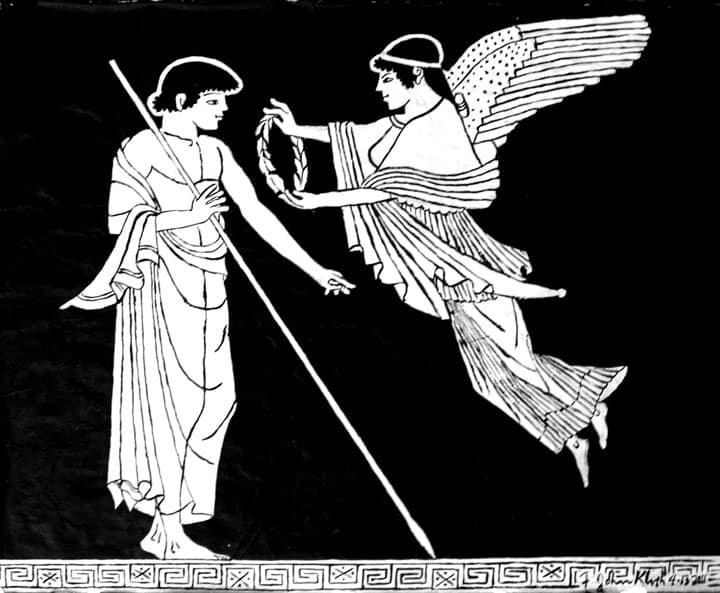- Athletes are embodiment of ourselves; extensions of the physical beings that we want and yearn to be
- The Greeks shared these sentiments
- Often we mythologize our athletes into greater personas than they actually are; following their every rejoice and exploit; building sports reporting and networks around their activities
- Diagoras of Rhodes, wins at Olympia, culmination of his career (had already won at other crown games and money games)
- Sculptor, Kallikles of Megara, set up his statue at Olympia
- On the base, there is a Pindarian ode: equates the toasting of a new family marriage/ alliance; to his shared joy of victory with other Olympic victors and friends. Sings praises of his father and fatherland; lists his many victories
- Important Words: arête and hubris. Diagoras is credited with achieving arête and having the moral virtue to avoid hubris. (extreme pride or arrogance) Not only will it make him a good athlete but also a good man
- Both of his sons also win at Olympia; carry their father on their shoulders; joint victory lap and the Spartans cry out: “Die now Diagoras, you’ll never be happier”
- His family built an Olympic dynasty; note: his third son, Doreius, and his nephew Peisirodos were exiled from Rhodes, but such stories are left untold; as to not slander his legacy
- Ode writers such as, Pindar, received great sums of money for their writing abilities
- Things such as scars, disfigurements were lefts out of odes and marble statues
- NOTE: arête was an individual characteristic. You didn’t have to be first to achieve you arête, as long as an individual
 exceeded the expectations placed on him, he was deemed to have reached his arête
exceeded the expectations placed on him, he was deemed to have reached his arête - The precise definition of arête was not even agreed upon in antiquity
- Aristotle: discusses the proper educational system for the young; not everyone agrees on what they should learn and if they should strive for arête or it should be theoretical based. Youth should be taught utilitarian things that are absolutely necessary. They must avoid vulgarity (anything that renders their body, soul, mind unable to practice arête); A man must not over exert himself in his studies and pursue studies which bring him inherent joy.
- Aristotle: He considers arête something that was neither practical nor theoretical (but something that leads to an excellent and virtuous life); all parts of the body, soul and mind are needed to achieve arête and its is not purely physical; over development is NOT arête
- Condemns the Spartans for turning their children into “little animals”; their training does not lead to virtue
- Other non-Greek races, lack nobility and are almost animalism in their training of their children in athletics and warlike drills
- Aristotle: until puberty, only light meals and non-forced work should be placed on children; so they can develop un impeded. Athletics should be a part of a man’s life but not the dominant force in it
- Plato: “arête cannot be taught”
